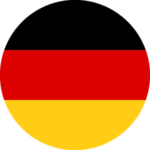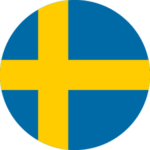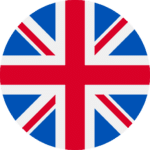Customs Value and Determination of Customs Value: A Comprehensive Guide
What is Customs Value & how is it calculated?
What Is Customs Value and Why It Matters
Customs value is the declared value of goods at import and forms the basis for calculating import duties and taxes. It is a core concept in international trade compliance.
For example, GlobalTrade GmbH, a fictional importer of electronics from China, must calculate customs value accurately to:
- Avoid penalties or shipment delays
- Prevent overpayment of duties
- Stay compliant with EU customs law
This guide explains:
- The definition and purpose of customs valuation
- The 6 valuation methods defined by the Union Customs Code (UCC)
- The role of Binding Customs Value Information (VZWA)
- Common FAQs importers face
What Is Customs Valuation?
Customs valuation is the process of assigning a monetary value to goods being imported into the EU. It determines how much import duty, VAT, and other charges will apply.
For businesses like GlobalTrade GmbH, customs valuation affects total landed cost, margin planning, and compliance risk. Customs authorities require transparent and documentable valuations to avoid manipulation or fraud.
Binding Customs Value Information (VZWA)
What is VZWA?
A VZWA is a formal, binding decision from the customs authority that confirms how a particular product’s customs value should be calculated.
Benefits include:
- Legal certainty before importing
- Reduced risk of reassessment or disputes
- A consistent valuation basis for similar future imports
How to Apply
Companies submit a detailed application to their national customs authority, including:
- Product descriptions and invoices
- Contracts or licensing agreements
- Pricing and cost breakdowns
Customs will assess the documents and issue a binding ruling, valid for 3 years.
Methods of Customs Valuation (UCC-Compliant)
Valuation methods must be applied in the order set out by the Union Customs Code:
1. Transaction Value Method (Preferred)
Based on the actual price paid or payable for the goods. This is the primary method and most commonly used.
2. Transaction Value of Identical or Similar Goods
If no transaction value exists, customs can refer to recently imported identical or similar products.
3. Deductive Value Method
Used when goods are already sold in the EU. Customs value is based on the EU selling price, minus:
- Import duties
- Transport and insurance
- Domestic markups
4. Computed Value Method
Based on the cost of production, including:
- Raw materials
- Labor and manufacturing costs
- Reasonable profit margin
5. Fallback Method
Used only if none of the other methods apply. It allows flexibility while still following WTO valuation principles.
Why Customs Valuation Is So Critical
Incorrect values may result in:
- Penalties or customs audits
- Overpaid duties
- Blocked or delayed shipments
Undervaluation can lead to:
- Fines or criminal charges
- Reputational damage
For GlobalTrade GmbH, getting customs value right protects operations and ensures compliance.
How Gerlach Can Help You with Customs Valuation
Our Support Includes:
- Expert consultation on selecting the correct valuation method based on your trade scenario
- Assistance with preparing and submitting applications for Binding Customs Value Information (VZWA)
- Review of your documentation (invoices, contracts, royalty agreements) to ensure compliance with customs regulations
- Guidance on including royalties, license fees, or intra-group transactions in your declared customs value
- Support with customs audits or disputes related to valuation
Whether you’re importing electronics, machinery, consumer goods, or raw materials, Gerlach ensures your customs declarations are accurate, compliant, and efficient.
Your Benefits:
- Access Gerlach’s digital tools and pan-European network
- Avoid costly penalties or shipment delays
- Reduce overpayment of duties
- Gain legal certainty with advance rulings
- Simplify internal customs processes with expert guidance
Frequently Asked Questions
What if the transaction value is not available?
If the transaction value cannot be used, businesses must apply the next method in the order provided by the UCC, starting with deductive value.
How are royalties and license fees included in customs value?
Royalties and license fees paid as a condition of the sale must be included in the customs value, even if they are not listed on the invoice.
Can I get a customs value decision in advance?
Yes. You can apply for a Binding Customs Value Information (VZWA) ruling from your national customs authority. This gives you legal certainty about how your goods will be valued before import.











